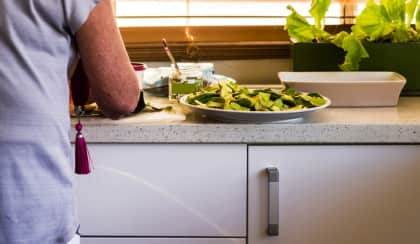Engineered stone ban gets backing from SA government

South Australia intends to back a national ban on engineered stone, following the release of a damning Safe Work Australia report last month which showed engineered stone workers are “dramatically” over-represented amongst workers diagnosed with silicosis.
If a nationwide agreement is not reached on the ban, South Australia has indicated it will look to outlaw the products, commonly used as kitchen and bathroom benchtops, across the state.
As reported by the South Australian government, when engineered stone is processed, whether by cutting or grinding, small particles of respirable crystalline silica dust are released, that when inhaled into the lungs, can cause silicosis.
Silicosis is a disease resulting in permanent disability and death, and has no known cure except lung transplantation.
In that report, it was highlighted that there is no scientific evidence for a “safe” threshold of crystalline silica content in engineered stone, and recommended prohibition on all use of engineered stone.
Where engineered stone is already installed, it recommended a licensing scheme for workers doing repair or maintenance.
South Australia acknowledged that the call to ban engineered stone has been supported by trade unions, health and safety professionals, and medical practitioners.
The state’s stance follows announcements by both Bunnings and IKEA – and another by Mitre 10 – that they would begin phasing out the sale of engineered stone products in their stores.
Commonwealth, state and territory WHS ministers will meet in December to decide on a response to the Safe Work Australia report. South Australia will support the prohibition on the use of engineered stone at that meeting.
South Australian Attorney-General Kyam Maher said: “It’s time to ban these dangerous products and keep South Australians safe.”
Reiterating the state government’s stance, he stated: “If there is no decisive national action on this issue by the end of the year, South Australia reserves the right to go at it alone with a ban on a state level.”
South Australia joins NSW in flagging statewide bans, as has been noted by the CFMEU which congratulated the Malinauskas government on its “strong pledge”.
It usurps the stances taken by Queensland and Tasmania, which have both thrown support behind national bans but have not committed to state action if an agreement is not reached.
